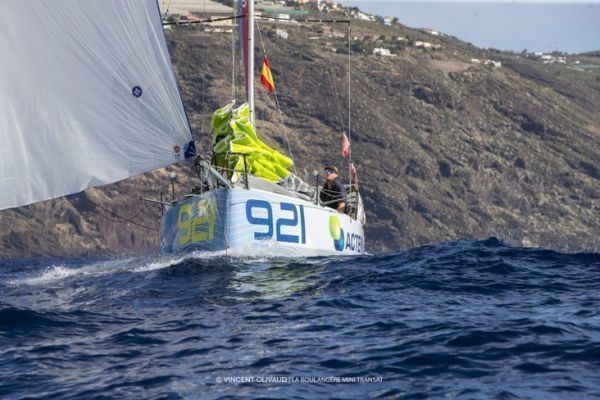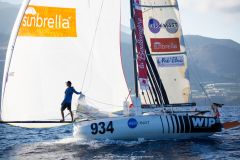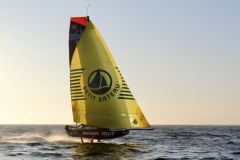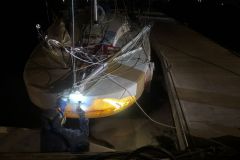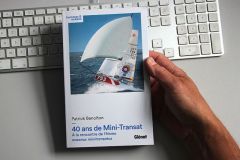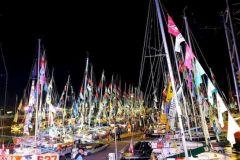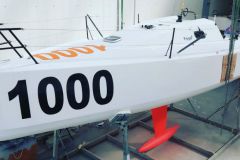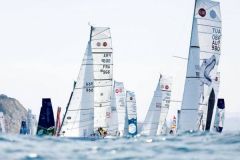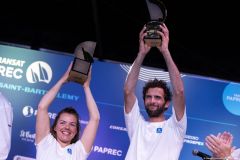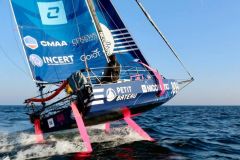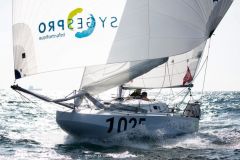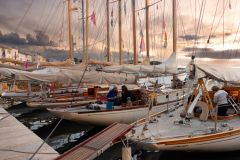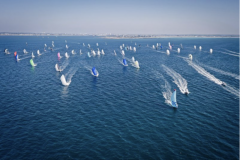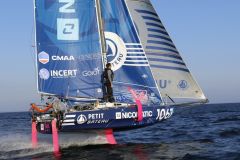The first participants have crossed the finish line of the first leg of the Boulangère Mini Transat. Unstable wind conditions and a lack of wind created a number of twists and turns, making this long and complex leg one to remember.
A very long stage
After a 24-hour delayed start to allow for a violent low-pressure system, the Mini fleet set off from Les Sables d'Olonne bound for Santa Cruz de Palma, for a 1350-mile leg. The start of the race was marked by light winds and slow speeds, but as the race directors had hoped, the Bay of Biscay was kind to the 90 competitors
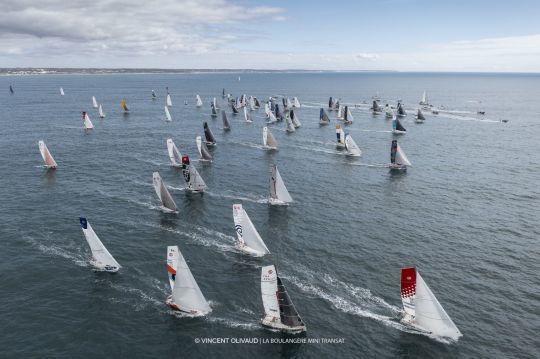
With only a daily audio weather report via SSB, strategic options were fairly limited in light airs. The direct route was therefore favored by the bulk of the fleet to reach Cape Finisterre, after rounding the way-point off Gijón.
The weather situation was complex, with forecasts that did not correspond to the reality encountered on the water.
A tough Cape Finisterre
The wind finally returned after passing the way-point off Gijon. In sometimes rough conditions, i.e. 3 meters of swell and 30 knots, all the competitors were threading their way between the coast and the DST of Cape Finisterre, apart from a few telemarines attempting an option. It was in these conditions that Federico Sampei, aboard 1046 âeuros DMG MORI Sailing Academy 1 set sail. The Japanese skipper was unhurt and returned to Cariño in tow, where he declared his withdrawal.
Federico Waksman on the 1019 âeuros Repremar âeuros Shipping Agency Uruguay won the Musée de la Marine Trophy, being the first to round Cape Finisterre.
An asthmatic Portuguese trade wind
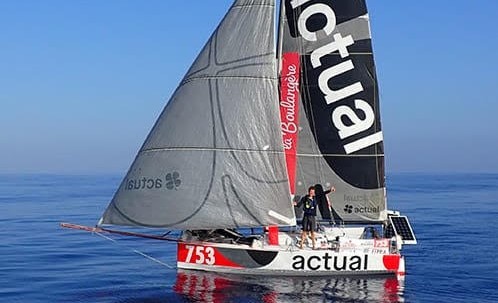
Instead of benefiting from a north-easterly flow which would have enabled them to sail down the Portuguese coast under spinnaker, the competitors had to deal with light winds and a pronounced swell. It was only around Porto that the head of the fleet was finally able to hit downwind conditions of around ten knots. A number of strategic options took shape, with part of the fleet sailing inshore and another preferring to stay on the great circle route. With sideways gaps of 130 miles, the rankings were difficult to interpret.
Speedy conditions for the fleet leaders
After passing Gibraltar, the front of the fleet finally encountered conditions conducive to speed. With a beam wind and a nice swell, the leading group lengthened their stride to 10-12 knots, and sometimes more, towards the Canaries.
The competitors furthest to the west have benefited from a shift to the right which will consolidate them in the leading group.
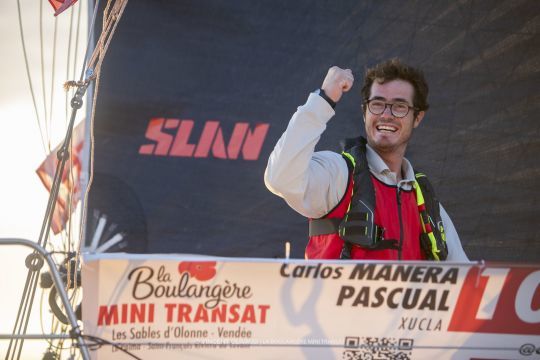
But that was without taking into account the devents of La Palma and the calms on the approach to the line. Victor Mathieu, who had been at the front of the pack since the start, was finally passed in proto at the finish by an inspired Carlos Manera Pascal, who tried an easterly option that paid off. The Spaniard took advantage of a steadier flow and crossed the line 10 minutes ahead. A cruel finish for Victor, who had a 40-mile lead on the eve of the finish. The podium was completed by Julien Letissier, who crossed the line 1 hour later.
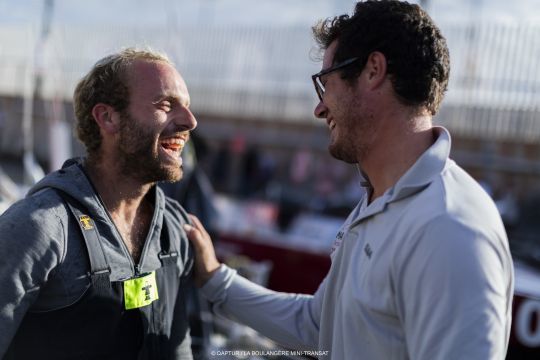
Special mention to Mael Cochet, author of an 8 e place, who put in a very fine performance on his proto launched in 2005.
In the series, the stage was won by Belgian skipper Michael Gendebien aboard Barillec Marine âeuros Actemium. The Pogo 3 fleet distinguished itself by taking the podium against the mini scows in this stage. Titouan Quiviger on Les Extraordinaires and Bruno Lemunier on Kalisto and Aérofab completed the podium in series. Justin Baradat on Da Gousket, who came 2nd at the finish, was demoted to 29th place following a 24-hour penalty due to a collision at the start of the race.
There were only 2 retirements out of a fleet of 90 boats, and none in the series. If the weather wasn't apocalyptic, it's also worth noting that the intense competition to be on the starting line increased the boats' level of preparation.

 /
/ 